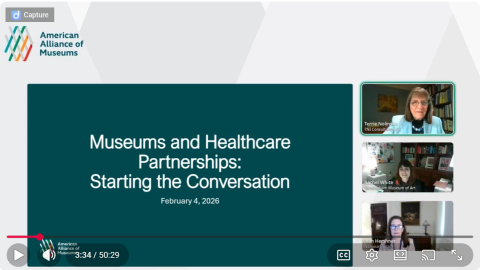- Our nation’s founders included advocacy in the Bill of Rights (“the right of the people…to petition the Government for a redress of grievances.”) And isn’t there plenty to be aggrieved about?
- Elected officials actually appreciate hearing directly from constituents—it helps them build stronger ties to their community and understand the future needs of their community. (I worked for several members of Congress so I know this from experience.)
- If you are not making your case, your viewpoint will often get overlooked when it does (or doesn’t) come up in future policy debates or budget battles.
- How much buy-in do you have from the community about the future of your museum? Are your community “success stories” helping to make the case for your museum? Are your volunteers and members aware of advocacy opportunities in support of museums? You have powerful, inspiring stories about your work in the community, something elected officials need to know about in order to shape—and invest in—the future of their community.
- Do your elected officials know how your museum educates and inspires their constituents, how your museum spurs local economic activity and creates jobs, or how your museum partners with local schools to educate future generations? Even if they love museums, your community leaders may not realize how many school children or seniors or veterans you serve. And if you are securing the future for others, in other ways, for example by hosting food banks or blood banks, let them know this, too.
- Do civic leaders know your museum’s future plans? Consider planting a seed about future exhibits, needed repairs, desired expansions, or special events or milestones. Elected officials can often help to publicize or otherwise support these endeavors.
- Visitthe AAM Advocacy website to find information andinspiration, including how to get involved with advocacy at all levels,what’s at stake, who represents you, and why it all matters.
- Signup to receive AAM’s Advocacy Alerts.
And (most important):
Join your colleagues in D.C. for Museums Advocacy Day, Feb. 27–28, 2012, or send a board member. Museums Advocacy Day is your chance to join with advocates and colleagues from around the country and Speak Up for Museums! We provide training and support—you do your civic duty to tell legislators about the good work museums do. And it’s way more fun than jury duty.







